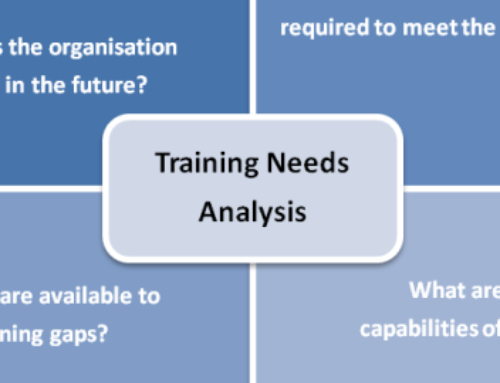Most instructors would readily agree that learner motivation is an important variable to consider when developing, monitoring, and assessing instructional effectiveness in educational games.
The term motivation in psychology is a global concept for a variety of processes and effects whose common core is the realization that an organism selects a particular behavior because of expected consequences, and then implements it with some measure of energy, along a particular path.” (Heckhausen, 1991, p. 9).
Psychologists concerned with learning and instruction use the term motivation to describe those processes that can energize and give direction or purpose to behavior (Wlodkowski, 1989). Motivation must always be studied in the context of historical traditions and the economic, social, and cultural conditions of the country in question (Fukász, 1985).
Definitions of Motivation
Physiological
Physiological definitions of motivation deal only with observable facts concerning measurable bodily functions. In general, the term “energized” is used to describe motivation. Behavior is energized through a strong external stimulus, called a drive stimulus. Drive states have to do with basic bodily needs, such as thirst, hunger, and the need to reproduce. (Travers, 1982)
Psychological
Are humans endowed with cognitive sources of motivation? Scientists have long debated this issue. Scientists cannot provide satisfactory empirical reasons for how motivation without external stimuli arises. It is possible that many aspects of motivation are learned. They are called psychogenic needs, needs that are learned.
Why is Motivation Important?
It is almost universally accepted that there is a positive correlation between motivation and learning. The more motivated a person is about a given subject, the more likely s/he will learn about that subject. We need to understand enough about motivation to know how to effectively employ it in instructional design processes.
An understanding of the particular conditions that energize human behavior is needed if we are to successfully control motivational constructs in instruction.
Instructional designers must pay more attention to motivational constructs when designing instruction and games.
Relationship Of Adults To Motivation And Learning
Adults, young and old, have some unique needs and up-front desires when it comes to learning. Most are very goal oriented, and want instruction that they can immediately apply to their job or life.
- Adults are highly pragmatic learners.
- They want instruction that gives them the ability to do something.
- They will actively seek out learning situations they consider optimal.
- They purposefully engage in learning situations to meet a goal and to achieve competence.
Motivation is high and intrinsic in these individuals. Adults also have a need to take charge of their learning. While they may want and need guidance in choosing amongst alternatives, they want to make the final decision. When adults see they are responsible for their learning they are likely to be motivated. Finally, it is possible that adults are motivated to learn because of their need to grow, to become more than they are (Knowles, 1980). This is certainly true for some percentage of adults in distance education settings. However, there are other adults who lack these autonomous capabilities, have the education thrust upon them, and they bring little motivation to the learning environment. They may have a limited educational background, or one that is rife with failures and problems. These two groups obviously represent the extremes of what one may find in a given adult learner population, but they are both valid, significant groups.
How does an instructional designer accommodate these separate groups?
The low conceptual learners (LCL) and high conceptual learners (HCL) will learn better and with higher motivation in situations that meet their learning needs.
- LCL people have relatively few cognitive structures and want to minimize ambiguity in their learning. They prefer structured, hand-fed instruction.
- HCL people are more complex cognitively and can deal with (and perhaps prefer) less structured learning environments.
Research findings supported these statements, suggesting that this is at least one way instructional designers can classify adult learners and thus develop appropriate instructional strategies for both groups.
For HCL people, motivational constructs embedded within the overall delivery of instruction are minimally needed, at best. For LCL people, motivational constructs probably should be included at key points, as this group lacks these constructs themselves.
Achievement goals are another area where learner differences come into play. There are two types of achievement goals that affect both motivation and performance.
-
Performance achievement oriented individuals are interested in developing competency in relation to others, doing what is asked of them, often only shallowly processing information.
-
Mastery achievement oriented individuals are interested in mastering the task for their own sake, and are not as interested in reaching a comparative norm.
Obviously educators would like to see all individuals approach a learning situation with a mastery achievement framework.
Can studies of motivation help us understand and design instruction and games that accommodates these different types of learners? If adult learners do need (or can at least benefit from) motivational constructs within educational games, what should instructional designers do during design to accommodate this need? Fortunately, there are several models and taxonomies about motivation instructional designers can examine to assist them in their efforts.
More articles:
- What Is Motivational Design?
- What is the ARCS Model?
Bibliography
Elliot, A. J., & Harackiewicz, J. M. (1994). “Goal Setting, Achievement Orientation, and Intrinsic Motivation: A Mediational Analysis.” Journal of Personality and Social Psychology 66(5), 968-980.
Fukász, G. (1985). Motivation for participation in adult education. In J. H. Knoll (Ed.), Motivation for adult education (pp. 172-177). Federal Republic of Germany: German Commission for UNESCO, Bonn
Heckhausen, H. (1991). Motivation and action (2nd ed.). Berlin, Germany: Springer- V erlag.
Knowles, M. S. (1980). The modern practice of adult education: From pedagogy to andragogy. New York, NY: Cambridge.
Travers, R. M. W. (1982). Essentials of learning: The new cognitive learning for students of education (5th ed.). New York: Macmillian Publishing Company.
Wlodkowski, R. J. (1989). Instructional design and learner motivation. In K. A. Johnson & L. J. Foa (Eds.). Instructional design: New alternatives for effective education and training. New York: McMillan.





